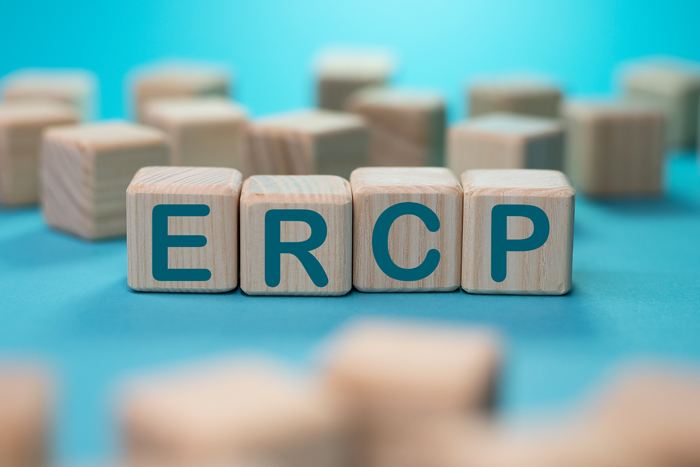ERCP Treatment & Diagnostics in Sadashiv Peth, Pune
ERCP
Introduction
What do you Mean by ERCP?
ERCP is the abbreviation for endoscopic retrograde cholangiopancreatography. This is a process that is used to check for diseases in the gall bladder, pancreas, liver, and biliary system. The ERCP techniques combine endoscopy and fluoroscopy to diagnose and treat diseases of the pancreatic and biliary ductal systems.

Why do you Need an ERCP?
As mentioned before, ERCP is used to detect and treat problems of the liver, pancreas, and bile ducts. For diagnosis, non-invasive tests are used sometimes but for the treatment ERCP is necessary. You might need an ERCP for the following:-
- gallstones that form in your gallbladder and become stuck in your common bile duct
- infection
- acute pancreatitis
- chronic pancreatitis
- trauma or surgical complications in your bile or pancreatic ducts
- pancreatic pseudocysts NIH external link
- tumors or cancers of the bile ducts NIH external link
- tumors or cancers of the pancreas
These are some of the reasons for which one might need to go through an ERCP.
Procedure of ERCP
The procedure for ERCP is as follows:-
- The procedure takes place in a hospital or an outpatient center.
- Sedatives are provided to the patient through an intravenous needle. This is done to ensure that the patient stays comfortable and relaxed during the procedure.
- The patient will be given a liquid anesthetic to gargle. Anesthetics might even be sprayed inside the throat.
- The anesthesia is done to numb your throat and prevents you from gagging during the ERCP procedure.
- Your vital signs such as blood flow and blood pressure will be monitored.
- Then the endoscope will be slowly inserted through your throat into the esophagus, through the stomach, and into the duodenum.
- The camera attached to the endoscope will send video images to a monitor. The endoscope pumps air into your stomach and duodenum. This makes it easier to see the images.
If any anomalies are detected, the doctor will perform the necessary surgeries with the help of surgical tools. Risks and Complications Involved with ERCP
ERCP is a low-risk procedure but sometimes there can be a few complications and side effects. The following are the risks and complications involved with and ERCP:-
- Pancreatitis
- Infections
- Bowel perforation
- Bleeding
- Severe abdominal pain
- Fever
- Chills
- Continuous cough
- Chest pain
- Nausea or vomiting
- Vomiting blood
- Blood in your stool
These conditions might or might not happen. They are not permanent and can be cured by a doctor. If you see any of these happening, then you should consult a healthcare professional immediately.
Request an appointment at Apollo Spectra Hospitals, Pune
Call 1860-500-2244 to book an appointment
How to Take Care After an ERCP?
One has to follow a few of these rules after an ERCP:-
- You have to stay in the hospital for recovery for at least a couple of hours.
- You might have to take medicines to relieve some pain in your throat.
- Someone should stay with the patient after the procedure.
- Do not drive for at least eight hours.
Conclusion
An ERCP is an easy procedure and is very low risk. If you feel any problems regarding your digestive system, it is best to visit a doctor. Doctors might suggest an ERCP. If after ERCP, you face any issues, contact a health care professional immediately.
Request an appointment at Apollo Spectra Hospitals, Pune
Call 1860-500-2244 to book an appointment
ERCP is a procedure that does use endoscopy as a method. It combines upper gastrointestinal endoscopy along with X-rays and more to diagnose and treat problems that are related to the pancreas of the bile duct.
The purpose of ERCP is to check for diseases in the gall bladder, pancreas, liver, and biliary system. The ERCP techniques combine endoscopy and fluoroscopy to diagnose and treat diseases of the pancreatic and biliary ductal systems.
While ERCP is being performed on someone, they generally lie on their side on a table. Some discomfort might be felt at the beginning of the endoscopy process. After a few moments, the discomfort becomes tolerable.
ERCP is a process that deals with the diagnosis and treatment of problems related to the liver, pancreas, and bile duct. So yes, ERCP does remove gallstones. This process removes gallstones from the bile duct without removing the gall bladder.
Our Top Specialities
NOTICE BOARD
CONTACT US
CONTACT US
 Book Appointment
Book Appointment


.svg)
.svg)
.svg)
.svg)








